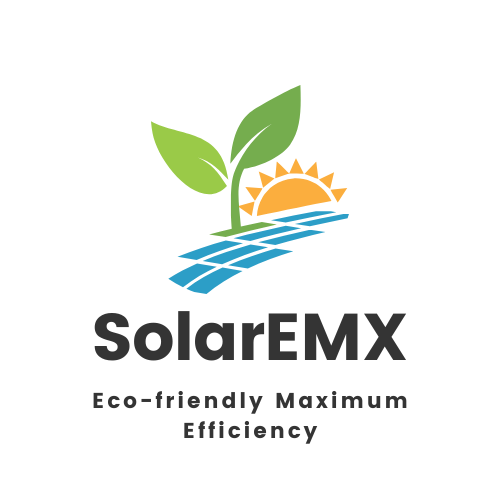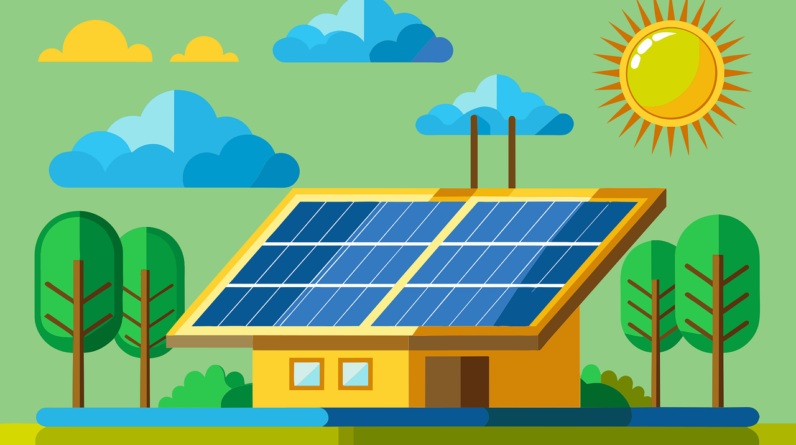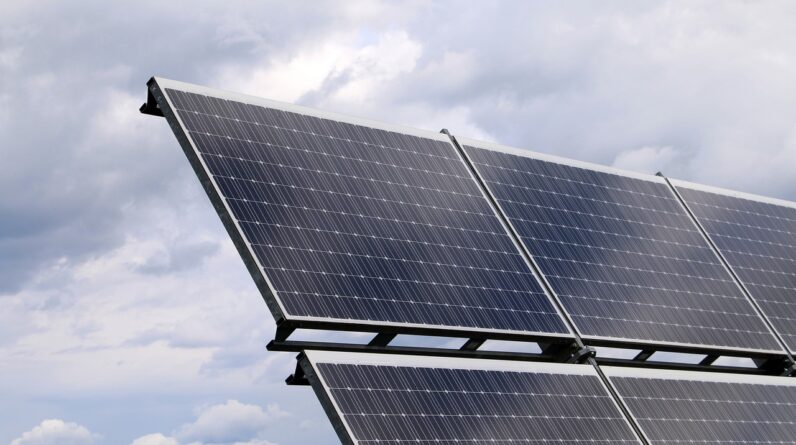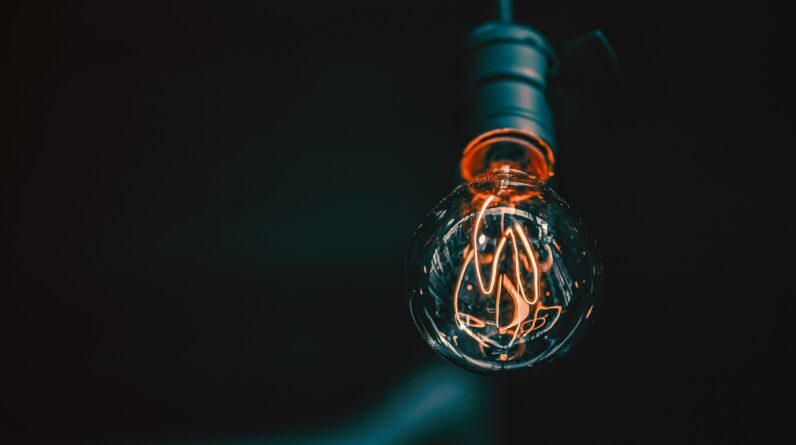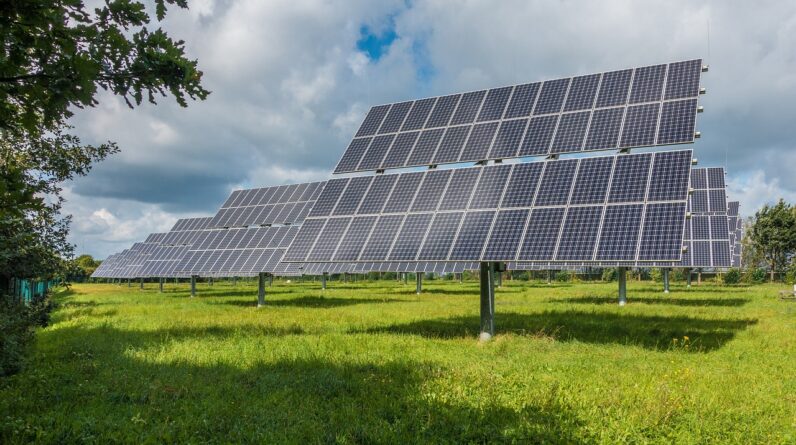
Maximize your solar panels’ efficiency with our essential maintenance guide. Learn cleaning tips, inspection techniques, and seasonal care for optimal performance.
Have you ever wondered how to keep your solar panels running at peak performance? Your solar energy investment is significant, so it only makes sense to ensure you’re getting the most out of them. Regular maintenance not only helps extend the life of your panels but also maximizes their efficiency and energy output. This guide will provide you with the essential steps to maintain your solar panels effectively.
Understanding Solar Panel Functionality
Before diving into maintenance, it’s vital to understand how solar panels work. They convert sunlight into electricity through photovoltaic cells. When sunlight hits these cells, it generates direct current (DC) electricity, which your inverter then converts into alternating current (AC) electricity suitable for home use.
Knowing this process highlights why keeping your solar panels clean and well maintained is crucial for optimal performance. Any debris, dirt, or damage can hinder their ability to absorb sunlight effectively.
Types of Solar Panels
There are mostly three types of solar panels you might encounter:
-
Monocrystalline Solar Panels
- Made from pure silicon, these panels are known for their high efficiency and longevity. They are generally more expensive but take up less space.
-
Polycrystalline Solar Panels
- These are made from multiple silicon crystals and tend to be less efficient than monocrystalline panels. However, they are more affordable and have a shorter manufacturing process.
-
Thin-film Solar Panels
- Ultra-light and flexible, these panels are typically less efficient but can be integrated into various surfaces and structures.
Understanding the type of panels you have can inform you about specific maintenance needs.
Regular Cleaning
Why Cleaning is Necessary
Dust, dirt, pollen, and bird droppings can collect on your solar panels, reducing their ability to absorb sunlight. Even a thin layer of grime can significantly decrease efficiency, so keeping them clean should be a top priority.
How Often to Clean
The frequency of cleaning depends on your local environment. If you live in a dusty area or somewhere with lots of bird activity, you may need to clean your panels every month. In other locations, quarterly cleaning might suffice.
Cleaning Techniques
Here are a few effective methods for cleaning your solar panels:
1. Using Water and a Soft Cloth
You can use a hose to rinse off loose debris, but you should avoid using high-pressure hoses, which can damage the panels. For more stubborn stains, you can use a soft cloth or sponge, along with a bucket of warm water mixed with a mild detergent.
2. Hiring Professional Cleaners
If cleaning your solar panels seems too challenging or risky, consider hiring a professional service. They have the right tools and experience to clean your panels safely and effectively.
| Cleaning Method | Pros | Cons |
|---|---|---|
| DIY with water and sponge | Cost-effective; easy to perform | Risk of damage; requires effort |
| Professional service | Safe; ensures thorough cleaning | Can be expensive |
Inspecting for Damage
Visual Inspections
Regular visual inspections are crucial for identifying any possible damage or issues with your solar panels. Look for:
- Cracks or chips in the glass
- Discoloration or fading
- Loose wiring or connections
If you spot any of these problems, addressing them promptly can prevent further damage and maintain efficiency.
When to Call a Professional
It’s wise to consult a professional if you notice significant issues such as:
- Cracked panels
- Water leaks
- Electrical issues
Experts can help diagnose problems you might not recognize and suggest the best solutions.

Monitoring Performance
Understanding Your Energy Output
Monitoring your solar panels’ energy output is essential for gauging their performance over time. Most solar systems come with monitoring software or apps. Your energy production may fluctuate based on various factors like seasons, weather conditions, and system maintenance.
What to Watch For
Pay attention to your energy bills and the readings from your monitoring system. If you notice a significant drop in production, it could indicate a problem requiring immediate attention.
| Monitoring Aspect | Action to Take |
|---|---|
| Significant drop in output | Conduct visual inspections or contact a professional |
| Consistent readings | Ensure regular cleaning and maintenance |
Maintenance of Other System Components
Inverter Maintenance
The inverter is a crucial part of your solar panel system, converting the energy captured by the panels into usable electricity. It’s crucial to keep it well-maintained.
Signs of Inverter Issues
- Error messages on display
- Overheating
- Noise coming from the inverter
If you experience any of these issues, consulting a professional can ensure your system runs smoothly.
Battery Maintenance (if applicable)
If you have a solar battery storage system, maintaining the battery is vital for overall energy efficiency.
Battery Maintenance Tips
- Check fluid levels regularly (for lead-acid batteries).
- Keep the battery clean and free of corrosion.
- Monitor the battery’s charge and discharge cycles.
Mounting System Inspection
If your solar panels are mounted on a roof or support structure, check the mounting system periodically for stability and wear. Look for rust, loose bolts, or other signs of wear and tear.
Seasonal Considerations
Spring Cleaning
As winter gives way to spring, a thorough cleaning and inspection can prepare your solar panels for increased sunlight exposure. This is an excellent time to remove any debris that may have accumulated over winter.
Summer Monitoring
During the summer months, solar panels are usually most efficient due to higher sun exposure. However, monitor for any shading from growing trees or buildings that could impact performance.
Fall Preparation
Autumn brings fallen leaves and debris that can cover your solar panels. Regular cleaning during this season helps maintain efficiency. It’s also wise to inspect for any damage that has occurred during stormy weather.
Winter Care
In snowy regions, keeping your solar panels free from snow buildup is essential. If safe to do so, remove snow gently with a broom. If the panels are too inaccessible, the sunlight should help melt the snow over time.
Understanding Local Regulations
Checking Local Solar Policies
Regulations regarding solar panel maintenance and safety can vary by locality. Make sure you are aware of any particular guidelines or laws that may apply in your area, including permits for any modifications or installations.
Tax Incentives and Maintenance Requirements
Some governments offer tax incentives for solar panels based on performance benchmarks. Regular maintenance can help ensure you meet these benchmarks, allowing you to take advantage of available deductions or credits.
Environmental Impact
Eco-Friendly Alternatives
If you’re concerned about environmental impact, consider using eco-friendly cleaning products. Chemicals may be harmful to the environment and local wildlife.
Tip: Homemade Cleaners
You can create a simple cleaning solution with water and vinegar. This approach is gentle on your panels and the environment.
Sustainable Practices
Practicing sustainable maintenance habits contributes to the overall effectiveness and efficiency of your solar energy system. From cleaning methods to monitoring practices, small changes can lead to significant environmental benefits.
Common Misconceptions
Solar Panels Don’t Need Maintenance
One widespread myth is that solar panels require no maintenance. While they’re designed to be durable, regular care is essential for maximizing performance.
Rain is Enough to Clean Panels
Another misconception is that rain will adequately clean your panels. While rain can help, it often leaves mineral deposits and doesn’t remove heavier debris like leaves or bird droppings.
Solar Panels Are Indestructible
Though solar panels are built to withstand harsh conditions, they are not infallible. Damage can occur from severe weather, falling branches, or improper installation.
Conclusion
By following these maintenance tips and guidelines, you can ensure your solar panels continue to operate at their best. Regular cleaning, inspections, and monitoring of performance are essential to retaining the efficiency of your investment.
Taking the time to care for your solar panels will contribute to sustainable energy solutions, lower energy bills, and a smaller carbon footprint. Your commitment to proper maintenance not only benefits your wallet but also promotes a healthier planet for all.
So, are you ready to service your solar panels and enjoy the benefits of efficient energy production? The steps outlined here can lead you toward maximizing your solar energy system’s potential, ensuring it remains an invaluable asset in the years to come.
